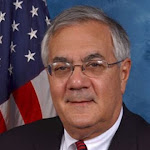Admittedly, Afghanistan and the war on terror poses one of the most difficult problems America has had to deal with in its history.
With so many variables, so many things going on at home, with a waning desire to war at home and a raging desire to defeat the western Goliath from Islamic extremists, there is really no room for errors in the decisions that must be made.
We can afford none of these decisions to be made in haste. What we do from here on out will be more consequential to whether or not we can stabilize Afghanistan than everything we've done in the past eight years. To that end, it is definitely a credit to our President that he took his time to review all available information and make his decision.
The defined mission in Afghanistan from the start has always been murky at best, but the reality of the situation is that our new objective there is to make sure Afghanistan can take care of itself, whether or not the administration will freely admit this. Our original mission was to find and kill Osama bin Laden and exterminate the Taliban and al Qaeda from Afghanistan, but it is my belief that the administration knows well that continuing to pursue that as victory is a lost cause and simply not possible. This, of course, would be a very tough message to convey to Americans and perhaps politically toxic.
We undoubtedly have our work cut out for us regardless of what our mission is for our stay there.
My estimation and perception of what the goals of Obama's plans are and the rewards they may or may not reap runs contrary to most criticisms out there. They contain good strategies that perhaps take the appearance of bad ones if you take the administration's goals and arguments at face value. My biggest point to make is that I believe that what the President hopes to do with this plan isn't what he's telling us publicly for the sake of not telling Americans a few hard truths.
While there is few who really care to argue the pointless 'war of necessity' vs 'war of choice' debate, Afghanistan and Pakistan are both countries with endemic corruption problems that are so bad, that a total of about 400 Taliban fighters in both countries are having the success of destabilizing Afghanistan over the long term, and increasing violence in Pakistan. As is the case in most insurgency wars, we find ourselves facing maybe a hundred Al Qaeda operatives in the entire country of Afghanistan in what amounts to trying to find a needle in a haystack. The country is largely urban with little villages sparsely covering the country's territory.
The Taliban's ability to do so much with so little manpower has lent at least some credence to the argument that leaving Afghanistan might result in the re-establishing of the country as a safe haven-one of Obama's big selling points for this and the previous surge.
While the 'safe haven' argument has big holes in it, the government in Afghanistan now doesn't have the capability to deal with the insurgency that exists now. Leaving them suddenly does leave the possibility open for a successful coup in what would essentially be a power vacuum.
The President perhaps has overemphasized this point to try to sell his new war strategy, but the reality is that if the government we've helped create in Afghanistan is driven out of power, the entire mission in Afghanistan would have been for nothing, the mission will have been an utter failure, and the fault of which would immediately be placed on the President and the democratic party regardless of who actually initiated the war. There must be at least some confidence in the administration and military officials that there is still time to at least leave a legitimate and self sustaining government behind.
We won't eradicate the threat of terrorism there by killing a couple of Taliban fighters every few days and weeks as we have been for some time now. After so many history lessons, it's become apparent to everyone that guerilla warfare isn't susceptible to overwhelming force and huge war spending budgets. In Vietnam our combined forces against the Viet Cong numbered well over a million, outnumbering them two to one and that effort failed.
So why does the administration seek to expand troop numbers if overwhelming force doesn't work?
The key to POTUS' plan lies in the withdrawal date.
The administration has warned Hamid Karzai that the commitment in Afghanistan is not open ended, and despite Robert Gates' assertions to congress that the withdrawal date is flexible, there's several indications that the intention of having a withdrawal date is truly a last straw for our commitment in the country and it isn't to be taken as lightly as some would like to.
There is a big increase in funding for police and army training requested by the President, as well as a big increase in American military personal specifically assigned to train them. The withdrawal date puts pressure on Karzai to root out corruption and make sure funds are being used to train and equip soldiers. The withdrawal date is at the very least testing whether or not Afghanistan's government is serious about stabilizing their country. The time line, even if not followed through, forces the hand of Karzai into making at least some progress at the risk of losing our support.
The withdrawal date also serves as an exhortation to the nation and allows Afghans the chance for self actualization, to do what Iraqis have done and rise to the occasion of protecting their homeland; eventually having less ill will towards America as we become less and less involved.
This move combined with a significant temporary surge in combat troops gives legitimacy to the counter-insurgency strategy being used in Afghanistan. It gives the possibility of one day transferring control over by using the overwhelming force of combat troops to protect population centers as well as the areas where Afghans are being trained to defend their country. It also makes it possible to streamline the process for training Afghans with few interruptions and minimal deaths; something that had been a huge problem in Iraq.
The plan makes use of the best parts from Bush's Iraq surge strategy and has stronger versions of tactics used previously. However, the faults in the plan lie in how large the troop increases are, how expensive the increase will be, and our inability to act against al Qaeda in Pakistan.
If the plan to train, cut, and run indeed does work, adding over 50% more troops is probably pushing it. Lives will be needlessly lost and large amounts of money will be needlessly spent that is sorely needed at home. There also needs to be an increased consideration for expanding the drone bombing programs they have for attacking al Qaeda in Pakistan. Our policy towards them will be critical when trying to end this war.
If we do this correctly, we have a reasonable chance to turn things around in Afghanistan and leave something stable that can at least provide its citizens security. Clearly, the matter on what our mission in Afghanistan has shifted, and the war is now truly winnable. What we can accomplish and whether or not Afghans step up to the plate will determine success or failure. Iraqis ended up stepping up and doing very well for themselves. Here's to a repeat of that so we can bring our soldier's home soon.






























































No comments:
Post a Comment